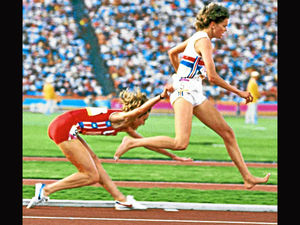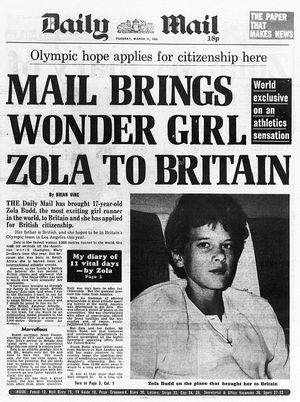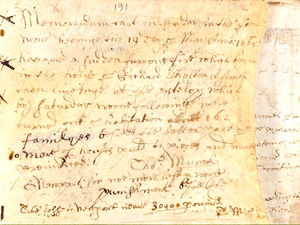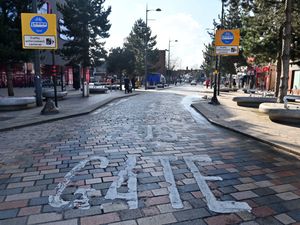How Zola Budd's taste of being British turned sour
It was the result nobody saw coming. When Zola Budd won the 5,000 metres at London’s Crystal Palace 35 years ago this week, she became the first British female athlete to break a world record since way back in 1972.

Not only that, but she broke it by an incredible 10.82 seconds, little more than a year after making her world athletics debut. And without wearing shoes.
But the main reason why the sporting world was taken aback was not the stunning margin of her victory, or even her lack of footwear. It was the fact that nobody knew she was taking part until she turned up on the starting line.
Zola Budd was only 19 years old at the time of her triumph in London, but by then she had already built up a reputation as one of the most controversial sports stars of her day. The South African born runner had not only angered the anti-apartheid movement by claiming British citizenship to circumvent sanctions against her home country, she had also become Public Enemy No. 1 in the US after her tangle with Mary Decker at the Los Angeles Olympics in 1984.
So when she turned out for her record-breaking race at Crystal Palace on August 26, 1985, her participation was kept top secret, to prevent the event being hi-jacked by anti-apartheid protesters.
This was actually the second time Budd had broken the world 5,000-metre record, and ironically it was Decker’s record she had smashed. But because her run in 1984 took part on South African soil, the sporting world refused to recognise it, and the American retained her crown.
The Daily Mail caught on that Budd had a British grandfather, and began a campaign allowing her to be granted British citizenship so she could represent Great Britain in the 1984 Olympics. She was granted citizenship within 10 days of her application being lodged, following the intervention of home secretary Leon Brittan, sparking bitter accusations that she had been allowed to jump the queue.

On being granted her UK passport, 17-year-old Budd told the Mail: “This is what I’ve been waiting for. I’ll run my heart out for Britain.” It was later claimed that the Mail paid Budd’s father £100,000 for exclusive rights to her story, and that she struggled to settle in Britain, feeling homesick.
Budd struggled with the media, and her failure to condemn South Africa’s apartheid regime won few friends. This was probably just youthful naivety. She always appeared painfully shy and seemingly ignorant of her nation’s pariah status. In one interview, she said she had never heard of Nelson Mandela, and she quickly became the target of boos from crowds at events in the run-up to the Olympics.
Nevertheless, she did represent Great Britain in Los Angeles, and the stage was immediately set for what promised to be a spectacular showdown.
Mary Decker was the golden girl of American athletics, who had set the 5,000m record which Budd had unofficially broken. In 1982 alone, Decker set six world records, and the following year she won the 1,500m and 3,000m races in the Helsinki world championships. But despite her obvious talent, events had conspired to deny her Olympic glory. As Decker lined up for the 3,000m at the Los Angeles games, it looked like only Budd could stand in her way – but no-one could have guessed how literally that would prove to be the case.
In the fourth lap, Decker and Budd began to open up a gap as they vied for the lead. Running in the inside lane, Decker’s right foot became tangled with Budd’s left foot. Exactly what happened has been the subject of fierce debate ever since, but Budd was left with a bleeding ankle, and Decker was sent crashing to the ground with a hip injury.
Baggage
Clearly shaken by boos from the crowd, Budd faltered to finish a distant seventh, allowing unfancied Romanian Maricica Puica to take gold. Budd attempted to apologise to Decker in the tunnel, but the heartbroken American retorted “Don’t bother.” At a press conference the following day, Decker told the world’s media she was in no doubt about who was to blame for the tussle – Zola Budd.
Budd did appear to find the West Midlands public easier to win over, though, getting a warm reception when she won the 1,500m at the Pearl Assurance national indoor championship at RAF Cosford in January, 1985, and when she successfully defended her title 12 months later. The Star’s Dave Wilkes described the crowd’s response at the track near Albrighton as the best since Sebastian Coe set his 800m world record in 1981.
But the rehabilitation was shortlived. There was more controversy when Budd was banned from competing in the 1988 Seoul Olympics, following claims she had taken part in a cross-country race in South Africa, and she would never again run for Great Britain. She did, though, represent South Africa in 1992, following the fall of apartheid.
The British public never took to Zola Budd, but with hindsight some might think it harsh the teenager became a proxy for the political ills of her country of birth.
A nation that happily basked in the mediocrity of Eddie The Eagle always viewed Budd with slight embarrassment. This was one British record breaker who came with just too much baggage.





